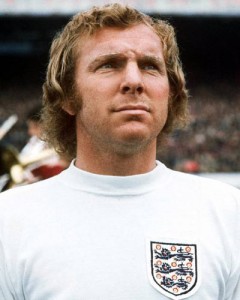I’ll try to be as brief and to the point as I can here, but it’s difficult not to feel nervous/excited about today.
I was alive in 1966, but I have no memory of it – I was two years and six days old and my mum and my grandmother had to take me to the local shops because I think I was probably interrupting my dad and my grandad’s viewing. I say probably, I’ll go with ‘definitely’ 🙂
Since 1985 we’ve played the Italians three times at Wembley and we’ve won none of those encounters. The last time we beat them there was way back in November 1977 in a World Cup qualifier, which was almost irrelevant: we’d already last in Rome the year before, which brings back a memory of about sixty of us schoolkids waiting outside the PE block for one of the teachers to tell us the score. It was a lunchtime kick off in Italy and finished 2-0; yet another England disappointment from the Seventies.
I think I mentioned in the original preview that the hosts haven’t won the Euros since France did it in 1984; Italy won ‘their’ tournament in 1968 but that was when it was semi finals/final only rather than group stages. Regardless of format, that’s still a long time ago, but it’s important to remember that England aren’t the official hosts for this tournament, despite the location of the final.
Italy
In this tournament, the Italians have been somewhat slow starters when it comes to goals, having notched none in the first 15 minutes so far. They have a tendency to wake up immediately before and immediately after half time: 40% of their goals scored with 90 minutes have been between the 31st and 60th minute, including both in the game against Belgium.
Defensively, they have faltered as they’ve played better sides as the tournament has continued: three goals isn’t really a sample size that’s representative enough, but two of those goals have been at the end of each half. That may or may not be significant.
I’ll take my hat off to Roberto Mancini, he certainly seems to have mastered the art of using his five (still seems weird writing that) substitutions in both the tactical and strategic senses. However, it remains to be seen how well his team holds up if they go behind: they haven’t been in that position since Edin Dzeko scored for Bosnia/Herzegovina in Firenze in a Nation’s League game last September.
England
One of the possible advantages we have is that we have started well at the start of both halves: 50% of our goals have come in the first 15 minutes of each half, even though all of those came in one game (Ukraine in the quarter final). We’ve scored two in the last 15 minutes of each half but – and this is a strange thing to say – our defensive prowess is arguably better than it has been for years: we’ve only conceded once in the entire tournament – Martin Damsgaard’s cracking free kick last week. That’s been the only time we’ve gone behind in Euro 2020.
I don’t think there’ll be many surprises in the starting lineup, but considering some of the subs benches we’ve had in the past, we’ve got depth to die for this time round – especially in attacking terms. I’m not sure how long Jack Grealish will get today though 🙂
Conclusion
Four of the last five European Championship finals have been settled by a margin of one goal – the exception was when Spain battered Italy 4-0 nine years ago – but only two of those games went beyond 90 minutes. The 2000 final was settled by a Golden Goal by David Trezeguet and Portugal won the last series in extra time. However, only *one* of those last finals featured a goal by both teams, which I think may change this evening as we’re as capable of unlocking their defence as they are with hours.
I’m going to leave it there as I need to fill the fridge with beer and the BBC coverage is about to start. There will be an update after the game.
It just might not make sense.
Update: same shit, different tournament. Next game: World Cup qualifier in Budapest on September 2nd.

